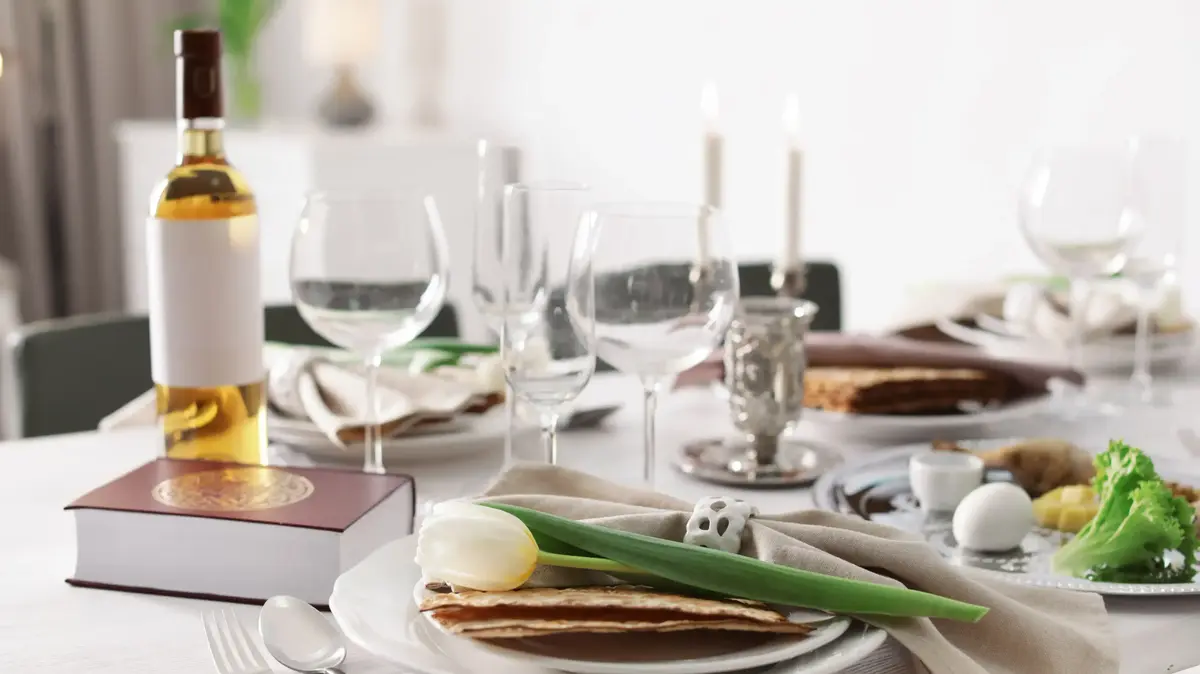Many times in our daily lives halachic questions arise and topical doubts arise. Rabbi Shai Tahan, head of the Sha'ari Ezra community and head of Beit Erzi HaLebanon, makes the laws accessible to us and answers questions asked in the Beit Midrash and outside of it. And this week: in preparation for Passover, which dishes should be dipped?
Question
:
Peace and blessings, Honorable Rabbi Tahan, and thanks to the Halacha section in Vala! Judaism.
In preparation for Passover, we bought many types of dishes and wanted to ask for practical guidance on what should be dipped.
Answer
:
Hello to the honorable questioners.
I will write you chapter heads of these important laws in the hope that the words will be useful.
The Torah commanded us (in Deuteronomy 10:23) to immerse food vessels purchased from the nations of the world in a mikvah of purity in order to expropriate the impurity of the Gentiles that is on the vessel (see 2 Yod 4 beginning of Siman 22).
In the opinion of most of the early ones, the baptism of metal vessels is Dauriyta, while glass vessels should only be immersed in a durban, and in any case, whether one immerses metal vessels or glass vessels, before the immersion, he should bless, 'Blessed are you, etc.' On the baptism of a vessel'. Metal tools include stainless steel and steel tools and the like. Even a Teflon pan must be dipped in a blessing since it is made of metal, and even though it is coated with a thin layer of synthetic material, since this material is very thin it is invalid for the main part of the utensil (the Grish Eliashiv is given in the Book of Kahlah Kahlah page 95). In contrast, an enamel vessel must be immersed without a blessing And this is because this metal vessel is coated with glass and earth (Ahl Ya'akov Halkhot Tavilat Kilim, page 3).
And regarding aluminum vessels, there is a dispute among the judges as to whether it is considered metal and whether it has a duty to immerse it, and as written by Ha'ram Finstein (Bagrot Moshe Yod 13 ).
Mark 22) that baptism is required only for the six metals that the Torah has adopted according to the wording of the verse (in Midbar no, 22): "But the gold and the silver, the copper, the iron, the tin and the lead", and there is no aluminum in all of them, so it turns out that their charge is only a spur. And the division can be explained according to chemistry, that the composition of the metallic material is essentially different from the composition of aluminum (Shalchan HaLevi Amud Ramo).
On
the other hand, there are opinions that require immersion, as well as the writings of Rabbi Yosef (Chazou 12, page 9), and Rabbi Sternbuch (Answers and Leaders of HaG Siman Rant), etc.
Baptize without a blessing, or baptize with another vessel that requires a blessing.
And here is glass, including all types of glass, such as Dural, Coral, Pyrex, Duralex, and the like, so he will baptize them with a blessing (Ehal Ya'akov Halkot Tavilat Kilim page 11). And even if the glass is decoratively painted, it can be immersed (the Book of Immersion of Dishes, end page)
utensils made of all other materials are exempt from immersion, such as plastic utensils, wood, porcelain, etc.
In porcelain vessels, although some require immersion without a blessing, many allow no immersion at all since they are earthenware, even though they are coated with a layer mixed with materials with glass. This is what the Hida wrote (Shiori Bracha, Siman Kach letter 3), and the Rabbi Yosef ruled as well (1114, Yod, Siman 8, and in the Lichai 17, Amud Ranz).
And here also electrical utensils should be immersed in them because they are dining utensils, and usually if you leave them after immersion for a few days without use the moisture dries up and the utensil doesn't break down, indeed an expensive utensil that has a big loss if it breaks down or is a digital utensil that then almost certainly breaks down in water, we will be sold to a gentile and other The seller will ask the gentile to lend it to him, thereby eliminating immersion since only vessels belonging to a Jew must be immersed.
David Berger, in collaboration with Shuba Israel

